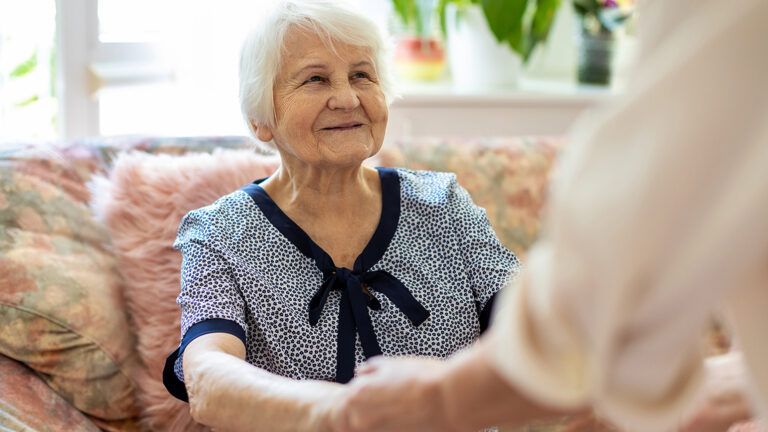This article is based on information provided by Home Instead Senior Care.
Holidays traditionally mean family time. People of all generations get together to share memories and create new ones. For many, these festive occasions allow us to let go and laugh, savor favorite dishes like mashed potatoes and pumpkin pie, and exchange gifts. But when a family member has Alzheimer’s disease or a related dementia, the holiday season can at times be stressful, disappointing and sad for all involved. However, there are steps you can take to help make family gatherings more enjoyable and ease some of the strain.
The following tips may help to make these occasions upbeat for everyone.
Know Your Limits
- Give yourself permission to do only what you can reasonably manage. Speak with family and friends in advance of the gathering via a long-distance phone call or a face-to-face meeting. Make sure that everyone understands your caregiving situation and has realistic expectations about what you can and cannot do. Keep in mind that some people may not understand all that is involved in caring for a person with dementia, so if they express frustration that you can’t take on more, gently explain some of the particulars to them. Don’t take on more than you can handle when hosting. If having company for an entire week is too much, consider making the visit a little shorter, or send your prospective guests a list of suggested alternative accommodations nearby.
- If you are staying with someone, request any necessary preparations in advance, such as having certain foods in the refrigerator and a bedroom space set up. If it would be helpful, ask your hosts to label important areas, like the bathroom and bedroom, with signs.
- Try to do what you normally do. Maintaining your regular routine is important. For example, bathing and eating times should be on a similar schedule to what they are at home. Eating in familiar settings, such as a dining room table, may be less confusing than eating at a crowded restaurant.
- Make others aware of your situation by writing a letter or email that can include these points:
✓I’m writing this letter to let you know how things are going at our house. While we’re looking forward to your visit, we thought it might be helpful if you understood our current situation before you arrive.
✓You may notice that ___ has changed since you last saw him/her. Among the changes you may notice are ___. I’ve enclosed a picture so you know how ___ looks now.
✓Because ___ sometimes has problems remembering and thinking clearly, his/her behavior can be a little unpredictable.
✓Please understand that ___ may not remember who you are and may confuse you with someone else. Please don’t feel offended by this. He/she appreciates your being with us and so do I.
✓Please treat ___ as you would any person. A warm smile and a gentle touch on ___’s shoulder or hand will be appreciated more than you know.
✓I would ask that you call before you come to visit or when you’re nearby so we can prepare for your arrival.
See to it that the person with dementia is actively involved
- Draw your family member in gradually by asking for help with simple things. You might work together at safe and manageable tasks like wrapping gifts or preparing food. You could simply ask the person to hand you decorations or give you a hand at setting the table. (Avoid using candies, artificial fruits/vegetables or other edibles as decorations. Blinking lights may confuse or scare the person).
- Maintain the person’s normal routine so that preparations don’t become disruptive or confusing. Taking on too many tasks can be stressful for both you and the person with dementia.
Be open to change
- Consider celebrating with lunch or brunch, rather than an evening meal, to work around the evening confusion or sundowning that sometimes affects people with Alzheimer’s.
- Think of positive ways to modify favorite family traditions if needed, or even start new ones that will better-accommodate the needs and routines of the person with dementia.
Give yourself downtime
- In the midst of holiday frenzy, everyone needs quiet time. Get away from it all for a while and allow yourself to relax.
- Prepare for a post-gathering letdown. Arrange for in-home care through a company like Home Instead Senior Care so you can enjoy a movie or lunch with a friend and reduce post-gathering stress. Professional CAREGiversSM are specially trained to manage dementia-related behaviors and will give you peace of mind while you take some necessary time to care of yourself.
The point of a family celebration is to relax and enjoy being with the people who matter the most to you. When you allow yourself to do this, everyone benefits, including your loved one with Alzheimer’s.






